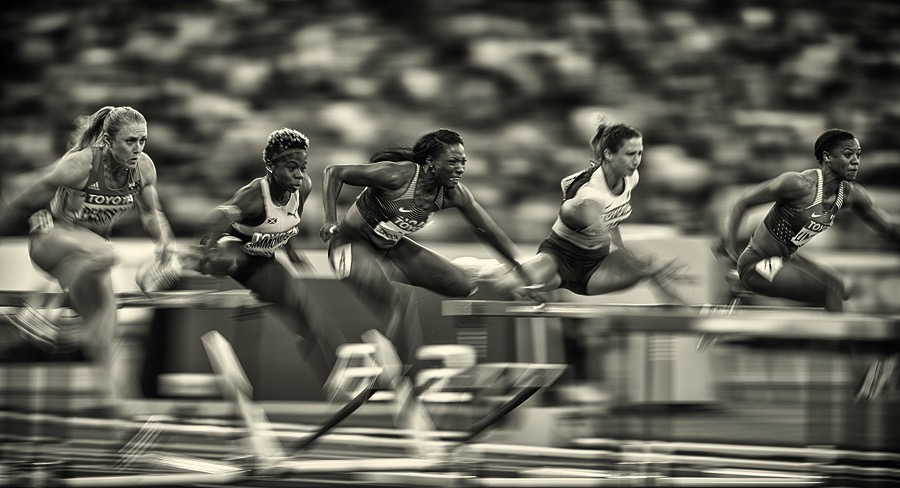By Len Johnson – Runner’s Tribe
The IAAF has shelved its plan to base qualification for the Doha 2019 world championships on its new rankings system.
Instead, the rankings, which IAAF president Sebastian Coe acknowledged to be “a complex system”, will be trialled through 2019 so that athletes and federations can become familiar with how the system is intended to work.
For the world championships, at least, qualification will revert to the performance standards-based method which has applied for most of the history of the championships.
There was no word in the media release announcing the delay regarding the implications for the Tokyo 2020 Olympic Games. The switch to the rankings-based method was first announced as the qualification system for Tokyo with the proposed system for Doha following at the end of September.
Further details – chiefly the “exceptional performances” by which athletes could qualify directly if they did not have the five performances required to earn a ranking in most events – were to be announced on 1 November. Instead, we have the delay.
It is a wise decision, though if reports of the degree of pushback from federations and athletes are anything like correct, it may be wisdom born of inevitability.
As the press release puts it: “There is still work to do to give full confidence that the points-based system is equally fair to all athletes and in all regions.”
These are precisely the sort of points raised by those sceptical of the proposed rankings system
Highly-regarded British international athletics commentator Peter Matthews expressed his reservations in Athletics International, the newsletter he produces with Mel Watman.
Matthews’ concerns centred around the difficulty of establishing a satisfactory ranking system, about the ability – and need – for athletes to have equal access to the high-scoring competitions and the potential impact on domestic competitions.
At the moment, the overwhelming majority of competitions carrying the highest rankings points in the proposed tiered structure are centred in Europe and, to a far lesser extent, North America.
While acknowledging the new system has positive elements – encouraging athletes to compete more often (a big plus); creating the basis for a better-integrated international competition program – I am not a fan, either.
I can’t see the problems of equity being solved anytime soon. Additionally, it remains unclear exactly what problem a rankings system seeks to address.
Will it engender more positive publicity for the sport, for instance. Perhaps: but the examples of tennis and golf – sports which already have a ranking system for entry into major tournaments – would suggest that rankings generate very few stories on their own, nor are they incidentally mentioned that often. Tennis and golf, moreover, have the advantage that their ‘majors’ bring together over 100 of the top-ranked athletes several times a year. Athletics cannot do this.
My bigger reservation is that it can fundamentally change the way federations select teams. Those many nations in which the national championships are paramount in their selection system will face a new situation in which the winner of their selection trial may not be their highest-ranked athlete, not ranked highly enough to qualify or, even worse, not ranked at all. There only option then is to select below the winner.
Even assuming the ranking system is a positive for the sport at the international level, does it help that individual national federations lose one of the few opportunities they have to promote the sport domestically because their selection trials no longer carry the guarantee of ultimate selection they formerly did.
Also, there will be no ‘team’ to acclaim until the end of the process, when the rankings are closed off a couple of weeks before the championships. How would it have been next April if Australia could name only one or two athletes to the Doha team at the conclusions of the national championships. How would it fit with Australian Olympic Committee team requirements the following year that athletics would not know until virtually the eve of the Games what size our team will be.
Even after a year’s trial, will we be any clearer on why the new system is needed, what problems it seeks to address and what positive benefits it will bring.
As I remarked in a piece I did recently for Runner’s Tribe, if the new system changes little, what is the point. If it changes a lot, is it worth the price athletes and federations around the world will have to pay.
Ellie Pashley
Finally, in all the excitement around recent Australian women’s marathon performances, one that seems to have slipped through the cracks was the 2:31:52 sixth place by Ellie Pashley in the IAAF Gold Label Cape Town marathon in late September.
Pashley improved by just over four minutes on her previous best, set in Berlin last year and improved to fourteenth on the Australian all-time list.





























